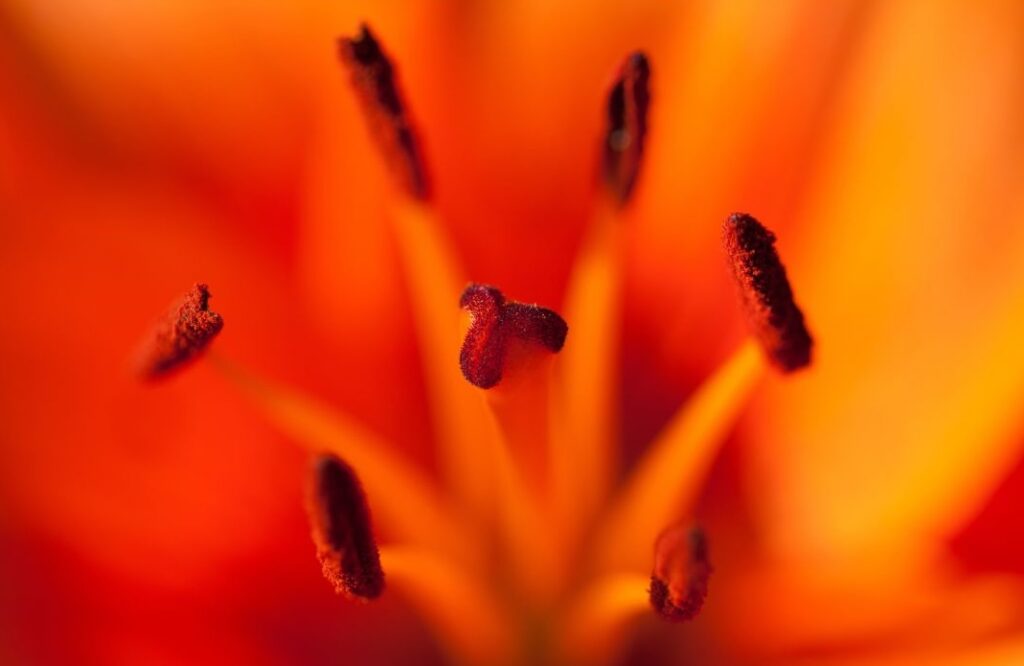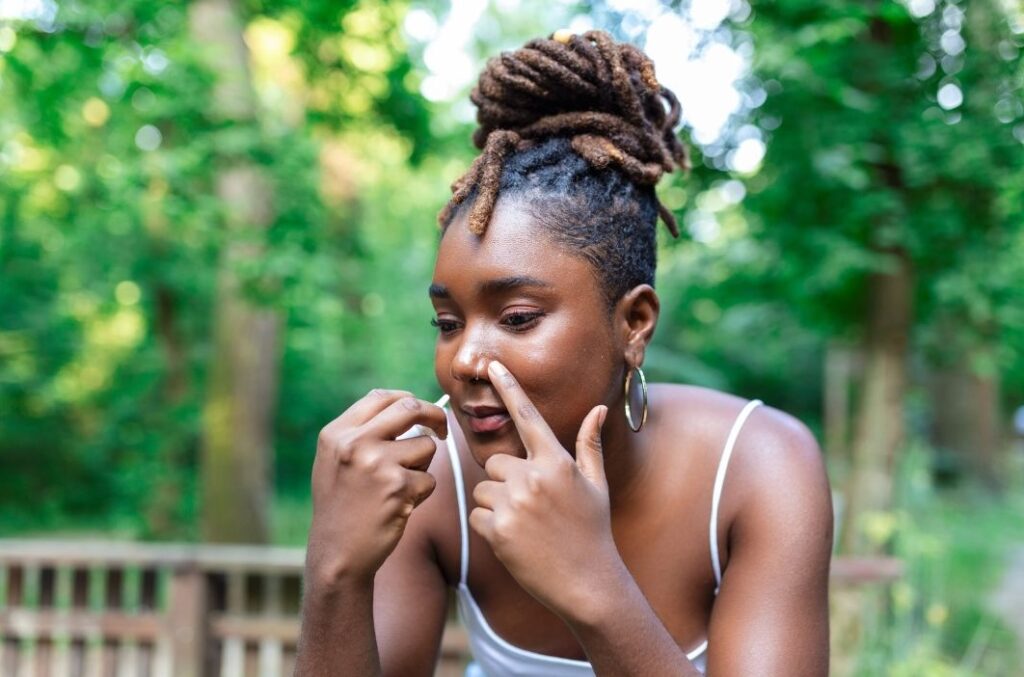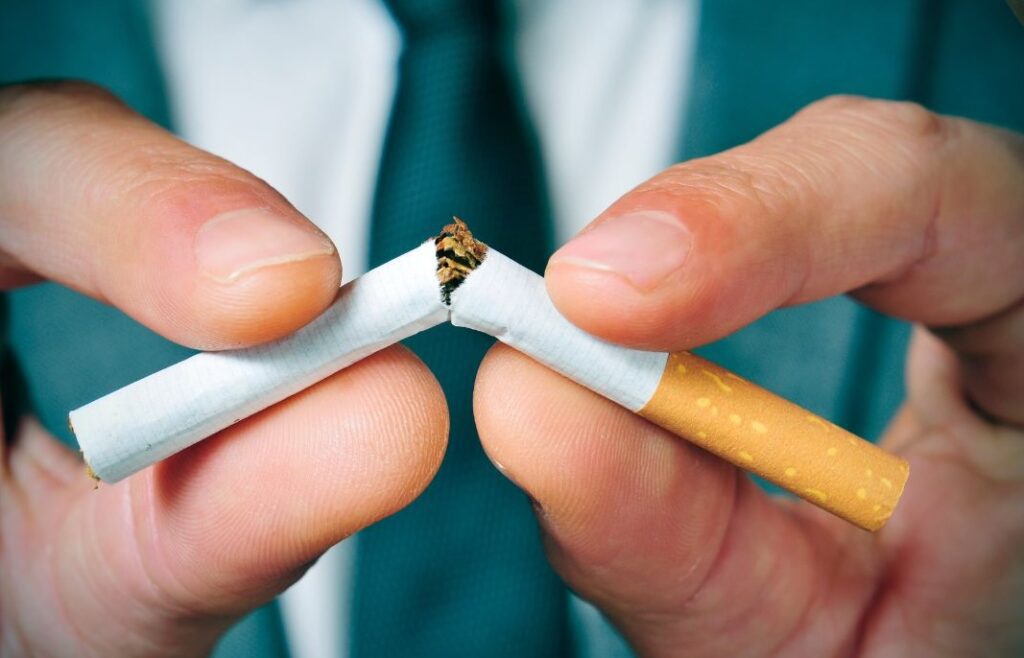As spring rolls around, bringing with it blooming flowers and budding trees, it also marks the beginning of the hay fever season.
For many, this time of year is associated with the unpleasant symptoms of hay fever.
The itchy eyes, sneezing fits, and stuffy noses can make it difficult to enjoy the season fully.
There are effective hayfever tips and strategies on how to cope that can help alleviate your symptoms by using hayfever prescription medication.
By including a few practical measures, you can enjoy the outdoors without discomfort this hayfever season.
1. Check the Pollen Count Daily

Knowing the daily pollen count is essential for understanding how to cope with hay fever.
Access this information through weather apps or websites dedicated to allergy forecasts. By planning your outings when pollen levels are low, it can significantly reduce your symptoms.
Learn about the types of pollen that affect you the most to better tailor your outdoor activities.
Staying informed can help you avoid peak pollen times, and make activities such as jogging, cycling, or even walking more enjoyable.
This proactive approach allows you to manage your exposure to allergens more effectively and maintain control over your hay fever symptoms.
2. Purchase Antihistamines
Antihistamines are the most common type of hay fever relief, blocking the body’s histamine response that triggers allergy symptoms.
From tablets to liquids, there are various forms available to suit your preference and severity of symptoms.
Consult a pharmacist to find the best type for you and learn the best way to use them, while being mindful of potential side effects.
Regular use of antihistamines during the season can help maintain your quality of life, reducing symptoms such as runny nose, itchy eyes, and sneezing.
Be sure to start treatment early in the season for the best results.
3. Keep Your Windows Shut
During high pollen days, keep your windows closed to prevent allergens from entering your home.
Consider using pollen-proof screens or air purifiers to maintain good air quality indoors.
Regularly check the integrity of window seals and explore other ventilation methods that do not disrupt your indoor air. This simple measure can greatly reduce the amount of pollen that enters your living space and helps to alleviate indoor allergy symptoms.
It’s also beneficial to regularly clean surfaces and vacuum using a HEPA filter to further reduce indoor allergens.
4. Try a Nasal Spray

Nasal sprays can provide immediate relief from nasal congestion and irritation.
They come in different formulations, such as antihistamine and steroid sprays, each working in unique ways to alleviate symptoms.
Make sure you use these sprays correctly to maximise their benefits and avoid side effects.
Nasal sprays can be especially effective when used as part of a daily routine during the hay fever season.
They can reduce inflammation in the nasal passages and provide quick relief, allowing for better breathing and less discomfort throughout the day.
5. Dry Clothes Inside
Avoid hanging laundry outside during the pollen season as it can collect allergens.
Instead, dry clothes indoors or use a dryer. Keep your living spaces free of pollen by regularly washing bedding and clothes to remove any particles that may have accumulated.
This practice not only keeps your clothes free from pollen but also reduces the overall allergen load in your home environment.
Additionally, consider using mite-proof covers for bedding and pillows to further protect against allergens that can exacerbate hay fever symptoms.
6. Avoid Gardening
Gardening can stir up pollen and mould spores that trigger hay fever symptoms. If you enjoy gardening, try wearing a mask or choosing times when pollen counts are lower.
Aim to buy low-allergen plants and always clean yourself and your clothes after gardening to remove allergens.
Consider designing your garden with allergy-friendly plants and utilising mulch to reduce weed growth and dust.
By taking these precautions, you can still enjoy gardening without suffering increased hay fever symptoms, maintaining your outdoor hobbies and a high quality of life during allergy season.
7. Stop Smoking

Smoking can trigger hay fever symptoms, as it irritates the airways making them more susceptible to allergens.
The same goes for secondhand smoke. If you are a smoker, consider quitting to improve your respiratory health.
Various support resources are available to help you stop smoking. Quitting smoking can not only help reduce your hay fever symptoms but also significantly benefit your overall health.
Non-smokers should also avoid environments where smoke is present to keep hay fever symptoms under control.
8. Reduce Alcohol Intake
Alcohol can worsen hay fever symptoms as some beverages, like beer and wine, contain histamine.
Moderating your alcohol consumption during the hay fever season could help manage your symptoms more effectively.
Consider alternatives like non-alcoholic drinks or those low in histamines.
By choosing these alternatives, you can enjoy social events without triggering your hay fever symptoms.
Reducing alcohol intake can also contribute to better overall health and reduce the likelihood of triggering allergy-related discomfort.
Employing these strategies can make a significant difference in how to cope with hay fever.
Make the most of the spring season by being active in your approach to dealing with hay fever.
For more advice and treatment options, including prescription medications, consult with a healthcare professional.
To explore further options or if you have any questions, feel free to contact us.


